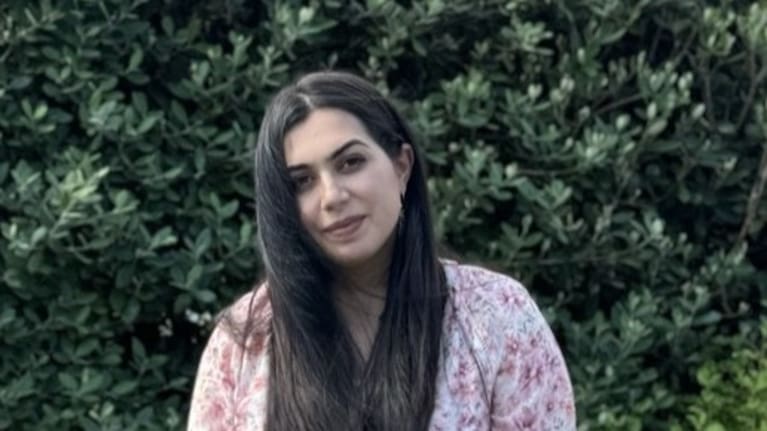Before Ugeshni Khan converted to Islam at the age of 25, everything she knew about being a Muslim woman was based on what she saw in the media.
“It was not a positive reference at all. I too held all these ideas that Muslim women are oppressed. They’re not allowed to be educated; they’re not allowed to drive; their only role in life is to be a wife and a mother… They don’t have freedom,” the 36-year-old says.
“After I came into Islam — after I actually started meeting Muslim women — I immediately realised all of this is completely false.”
This is why, she says, she was so passionate about being part of a campaign dedicated to uplift New Zealand Muslim women and break those harmful stereotypes.
‘Just CHILL NZ, we’ve got this’
Ugeshni is one of eight New Zealand Muslim women featured on the CHILL campaign, which means Challenge Islamophobic Language and Loathing, and focuses on their joy, strength, community belonging and leadership.
It’s a social media campaign launched by the Islamic Women’s Council (IWCNZ) in June, where each video ends with the women saying “Just CHILL New Zealand, we’ve got this”.
The CHILL campaign is a finalist in two categories, gender equality and immigration and refugees, in the Shorty Impact Awards – a yearly international competition honouring the best and most impactful work by brands, nonprofits and individuals across digital and social platforms.
Changing the narrative of Muslim women
Ugeshni, who is an operations engineer, outdoor enthusiast and YouTuber, says she’s looked for a connection with God ever since she was little.
“I was raised in a Hindu household, but a lot of my family had converted to Christianity so I started going to church trying to find that connection with God there but I still didn’t feel like it was right for me.”
Her first exposure to Islam was through Muslim students at her university and she says their dedication to their religion intrigued her, like when they fast for the month of Ramadan.
When she understood what the religion was about, she says she finally found the connection with God she’s been looking for.
“The thing that I love the most is literally just the peace and tranquility I feel… I love being a Muslim person… the connection that I feel with God, I can’t compare it to anything else.”
She says she’s been overwhelmed by positive responses from people within and outside of the community since the campaign launched.
“[People] are telling me [they’re] just grateful that for once, they are being represented by their own community rather than somebody else holding that narrative.”
A US study in 2022 showed only 1% of TV and film characters were Muslim — yet Muslims made up 25% of the world’s population.
The study also found Muslim women were often portrayed as fearful, vulnerable and endangered from predatory behaviour or violence.
Because of the media’s portrayal of Muslim women, Ugeshni says people associate them as someone covered in a black hijab or niqab with no freedom.
“I do wear a headscarf, so I’m very much openly Muslim. Whilst some people might not like that, I love that because I feel like I’m identifying with one of the biggest parts of who I am.”
Ugeshni says wearing different clothes or being covered with a hijab doesn’t people them any different.
“People have seen us in this way for so long and I understand why but we have the opportunity now to finally change that narrative.
“I want them to know that no, we’re not oppressed. We do this by choice. Some of us are super intelligent… We do sports, we do everything.
“We’re no different to any other woman on this planet.”
‘A deeper understanding of a Muslim woman’
Rand Alomar, the IWCNZ community development lead and a core team member of the campaign, says they didn’t even expect to get global attention so being finalists in two categories is a huge win in itself.
Statistics from IWCNZ shows 30-35% of reported hate crimes or incidents involve a Muslim woman, which is a lot since Muslim women are only 1% of the population, Rand says.

She says these hate crimes include online, physical and verbal harm.
Following the Christchurch mosque attacks, where a terrorist killed 51 people, online hate towards Muslim people has increased, according to a 2019 NetSafe survey.
In 2022, an Otago Girls’ High School student ended up in hospital with a concussion after three fellow students ripped off her hijab and beat her.
Rand says Islamophobia thrives on negative assumptions so they wanted to show people real stories and real talents “to understand who we are as Muslim women”.
She says they wanted to take a positive approach with the CHILL campaign and build bridges rather than walls.
“We wanted [people] to walk away with a deeper understanding of a Muslim woman and what our contributions as Muslim women are to today’s society.
“We just want people to realise that we’re just like any other woman with hopes and dreams.”
An unexpected outpouring of support
Because online hate towards Muslim women is rampant, the team has had clear processes from the start to ensure the participants were supported if they encountered any abuse.
“Unfortunately, it’s something that we do consider in everything we do. We value these wonderful women who have given us their time to be part of this campaign,” Rand says.
But they didn’t have many negative comments, and instead received an outpouring of support.
“We managed to reach over 300,000 people in New Zealand and we received thousands and thousands of comments and less than 10 of these were hate comments.
“The feedback received is that [it] was so uplifting and we’ve provided the right resources, so to see those statistics is just amazing.”
